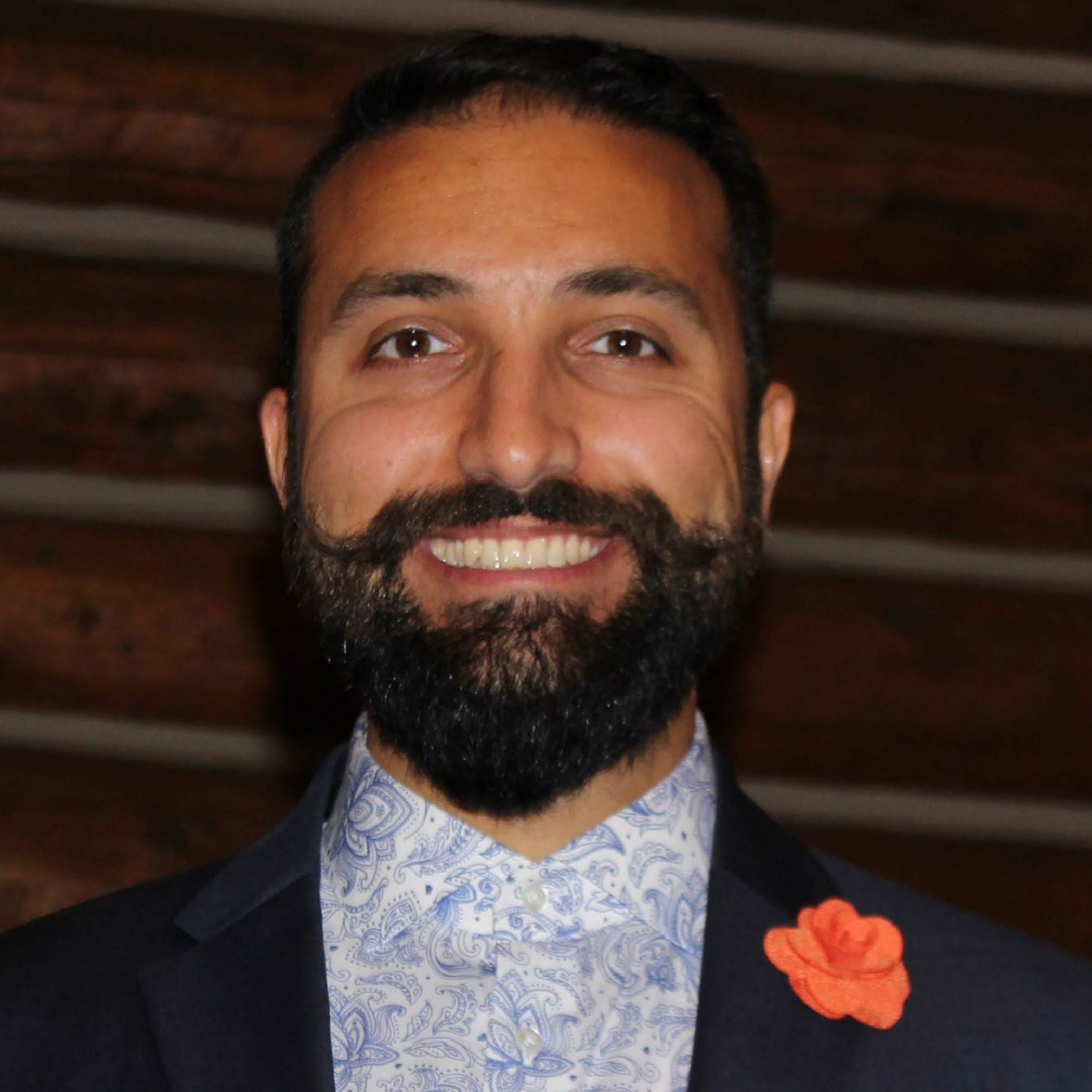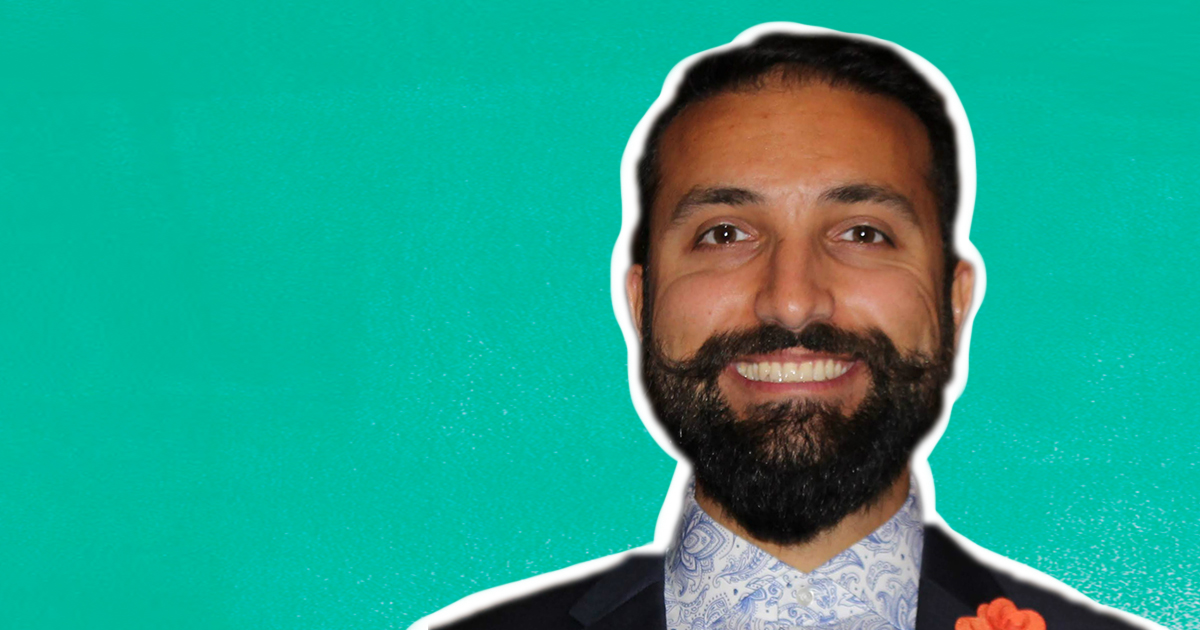
Jamie McCrary
In spring 2020, the murder of George Floyd by police sparked weeks of protests worldwide against police brutality and racism. The resulting civil unrest, a scale unseen since the assassination of Martin Luther King Jr. in 1968, ignited a profound racial reckoning which continues to reverberate today.
Many companies have experienced this same call to justice in the business world, responding with a renewed commitment to diversity, equity, and inclusion (DEI). For some, including global consulting firm Deloitte, this means reimagining what an equitable workplace looks like—and equipping others to follow.
“I think we’re yet to understand the full impact of the George Floyd movement on society,” says Aimal Ahmadzai, Diversity, Equity, and Inclusion manager at Deloitte. “For DEI in the business space, it’s been the impetus for so much introspection and progress.”
At Deloitte, Ahmadzai, MBA ’14, is focused on helping ensure an equitable, inclusive, and diverse workforce for the company and a slew of cross-sector clients. He works closely with public, private, and nonprofit organizations on DEI state assessments, a tool used to evaluate organizations’ DEI maturity—a priority that’s skyrocketed since 2020.
Deloitte’s assessments help companies pinpoint gaps in diversity by analyzing the demographics of current and prospective employees. If assessments identify demographic disparities, Ahmadzai then conducts a barrier analysis to investigate why. Potential barriers might include biased hiring policies, practices, procedures, or antiquated performance reviews.
Current trends only further validate the need for change: Of the 125 million employed in the US private sector, Black workers account for just 12 percent, according to a recent report by McKinsey & Company. BIPOC also suffer notably higher rates of unemployment than white people.
DEI feels like my calling. It’s the work I’ve always wanted to do."

Aimal Ahmadzai
Kogod MBA'14 alum
Dissolving Barriers to Equity
Pay equity, a universal and ongoing issue in DEI, is a particular focus area. With Black and Hispanic women earning about 60 percent less on the dollar than white men, Deloitte wants to empower companies to begin closing the pay gap.
“Correcting these disparities across industries is a big reason I got into DEI,” says Ahmadzai. “We’re working to understand data to uncover the root causes behind barriers to equity.”
Assessments have confirmed some disconcerting trends, like minority workers’ lower perceived professional value. Supervisors tend to rate the performance of their Black, Hispanic, and female employees drastically lower than their peers, a primary force driving the pay gap for BIPOC and women
Implications for action include restructuring performance review processes, instituting cultural bias trainings, or providing ongoing professional development—opportunities supporting greater BIPOC representation in executive leadership, another critical issue Ahmadzai’s research has validated. Ultimately, he hopes to support a shift in how businesses recruit and hire people, with DEI as a guiding value.
“How do we help them either recruit differently or retain talent more effectively?” asks Ahmadzai. “This is a good place to start to bring organizational culture shift.”
Advancing Accountability
Deloitte aims to create accountability for companies and the public sector through its research and recommendations. The goal is to empower change through transparency throughout the talent lifecycle, helping businesses better understand their workforce—and what specifically drives inequity.
We want businesses to know and share what they look like so they’re accountable to themselves and the workforce as a whole."

Aimal Ahmadzai
Kogod MBA'14 alum
A cornerstone of Deloitte’s strategy is ensuring publicly available workforce data through publications like the newly minted DEI transparency report. First released in 2021, the annual report details Deloitte’s employee and leadership demographics by race, ethnicity, and gender. Trends in company promotions and pay equity, as well as recruitment data, are included, too.

[Excerpt data from the 2021 DEI Transparency Report. Credit: Deloitte]
Each year, Deloitte will re-evaluate data—Deloitte’s 2022 report was also recently released—to track trends and measure progress. Continued evaluation helps ensure Deloitte meets its DEI goals—and that current and prospective employees can access accurate, up-to-date information.
Ahmadzai is eager to see more significant shifts in workforce diversity and organizational culture but stresses that even minor changes are worth celebrating.
“We have to understand progress is incremental,” he says. “It’s not as fast-paced as I’d like, of course, but it is happening. That’s fulfilling to see.”
Inspiring Business Innovation
As Ahmadzai continues to advance his career in DEI—and navigate the country and company’s ongoing racial reckoning—he’s excited to see how businesses evolve. Diversity is a primary driver of innovation, Ahmadzai says, and he’s passionate about developing a workforce with a greater variety of cultural backgrounds and perspectives.
DEI increases innovation and collaboration so companies can better meet the greater public’s needs. There’s an upfront cost to reassessing your workforce and culture, but in the long-term, being very intentional pays off.”

Aimal Ahmadzai
Kogod MBA'14 alum
Through his DEI research and analysis, Ahmadzai is helping reimagine a more equitable and just workforce, answering the call to justice sparked in 2020. At Deloitte, he’s working to leverage business as a driving force for social change.
“I want to make a difference for my clients,” says Ahmadzai. “I've seen the impact business can have, especially in the DEI space—and I’m honored to help shape it.”
